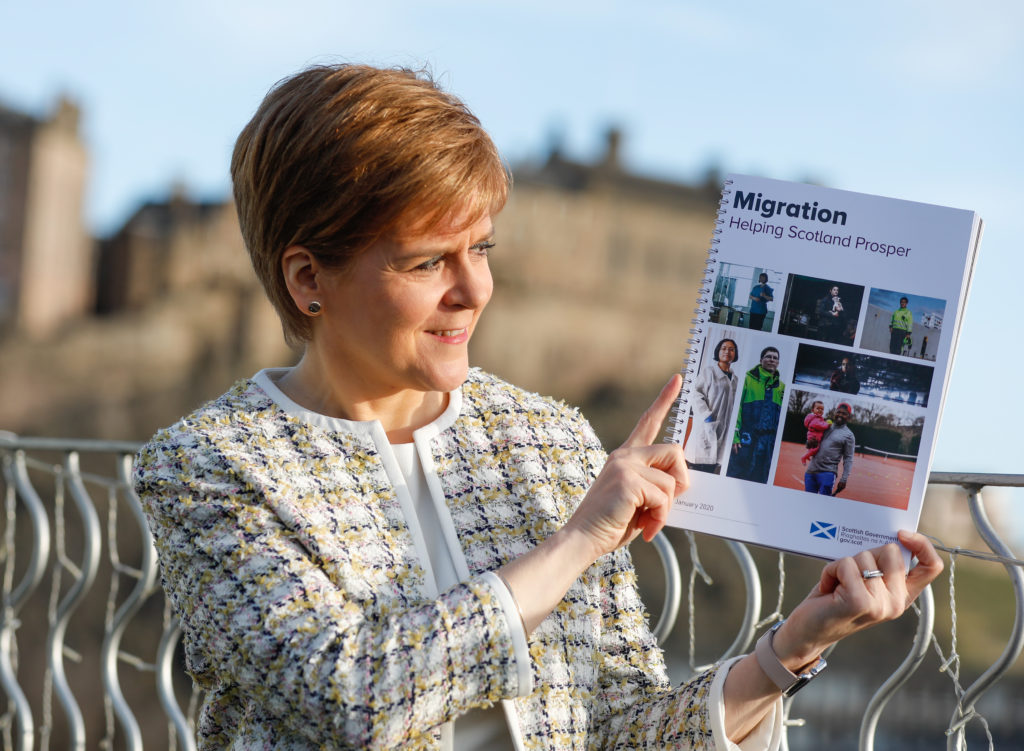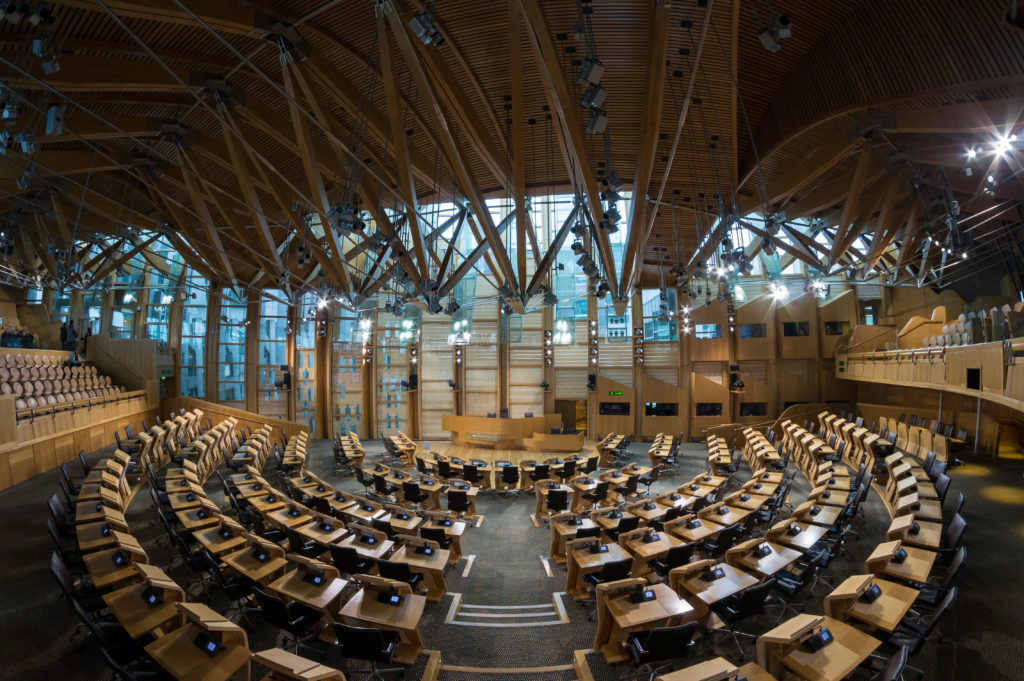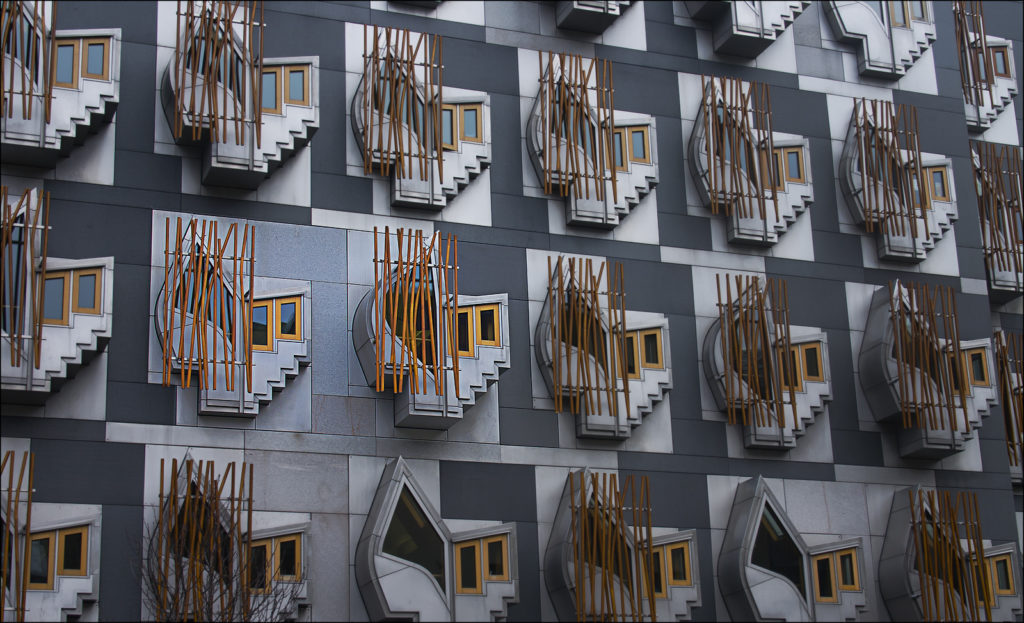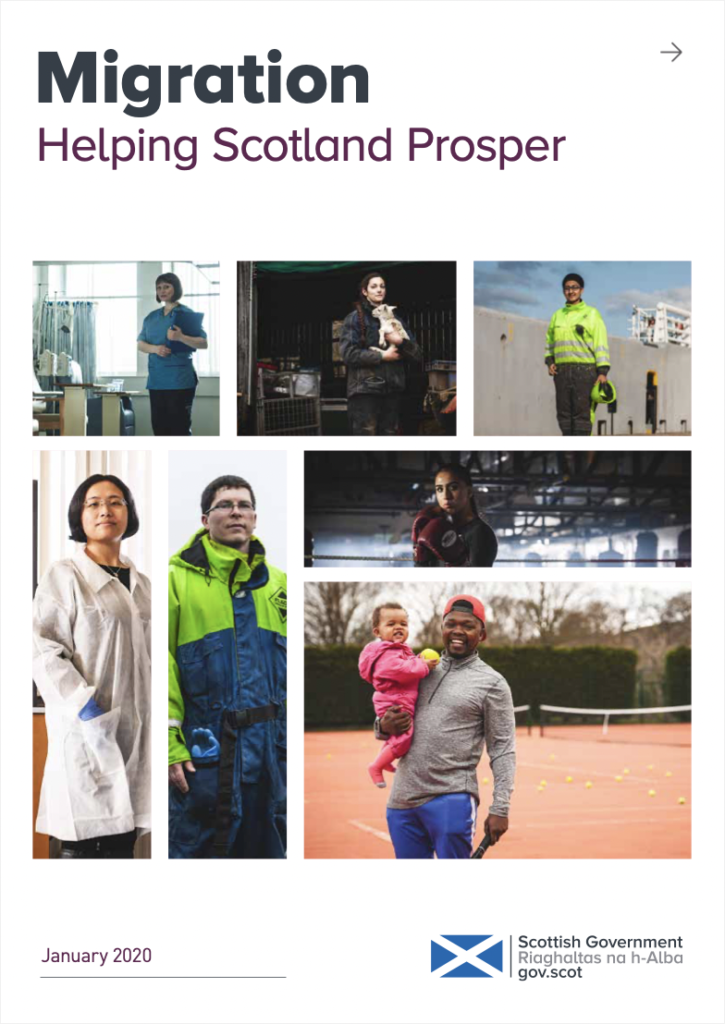Migration and the Scottish Constitution
The Scottish Government is renewing its calls for a second independence referendum. The First Minister’s suggestion that the next election will be fought by the SNP exclusively on the matter of independence reflects a renewed intensity of focus by Holyrood’s largest party on their flagship policy. Calls for a second referendum, in turn, again raise the question: what would Scotland do with its independence?
Immigration is a perennially contentious issue in most relatively high-income countries, and a vital consideration in the context of debates about constitutional change in Scotland and the UK. Population growth in Scotland has been identified as a key contributor to, and consequence of, a more vibrant society and a more dynamic economy. Questions about Scottish immigration policy should therefore be raised not only in the context of independence, but in that of devolution more generally.

Research at St Andrews examined Scotland’s migration ‘needs’, and the extent to which policy could potentially better respond to them. Conducted in the School of Geography and Sustainable Development by Dr David McCollum, Prof. Hill Kulu and Prof. Allan Findlay, this research demonstrates that Scotland faces demographic challenges that are distinct to those in the rest of the UK. As such, it argues in favour of a distinct Scottish migration policy. These findings have influenced political debates around immigration policy in the Scottish Parliament and UK Parliaments and have informed citizen understanding of the interface between migration and Scottish constitutional change.
A Scottish Migration Policy
The chief focus of this body of research has been to assess the pressing issue of migration and Scottish immigration policy in the context of constitutional change. It was mainly carried out in the run up to the September 2014 referendum on Scottish independence, and the subsequent Smith Commission that examined which further legislative powers should be devolved from the UK to Scottish Parliaments. More recent work has responded to debates about migration and immigration policy in Scotland in the context of Brexit between 2016 and 2020, as well as identifying how the Scottish economy could benefit from charting an independent stance on immigration. With talk of a second referendum never far from the front pages, research by Findlay, Kulu and McCollum is still relevant today and will remain so for the foreseeable future. The scope of their research is extensive, examining migration through the lenses of the labour market, international student aspects, public opinion, and local authority perspectives, while also modelling population changes in order to determine Scotland’s migration ‘needs’ and the extent to which a localised policy could respond to them.
The key insights that emerge from this body of work are that Scotland’s experience of and attitudes towards immigration are distinct from the rest of the UK. Scotland faces specific demographic challenges, which will have considerable economic implications. Specifically, due to modest fertility rates, Scotland is much more reliant on immigration for demographic stability and growth. There is also somewhat less public hostility to immigration, and international students are more important to the financial sustainability of Scotland’s tertiary education sector. The research contends that immigration policies that are specifically suited to Scotland’s needs are merited, and that there is qualified support for this amongst policymakers, practitioners and (to an extent) the public in Scotland. Critically, given uncertainty over Scotland’s future relationship with the UK, their research demonstrates that this is practical under various constitutional scenarios. It also finds that these issues are ever more pressing in the context of the demographic and economic vulnerabilities Scotland faces within a more restrictive UK immigration policy post-Brexit.

Enriching Scottish policy
Whilst control over immigration policy has largely been retained by the UK Government, the Scottish Government has consistently argued for greater autonomy in this area. Research at St Andrews has shaped and substantiated the specific policies and policy stance of Scottish lawmakers alongside a diverse range of organisations in Scotland and the rest of the UK.
These insights played an important role in informing the Scottish public in the run-up to the first independence referendum, with their researchers making appearances on the BBC Sunday Politics programme and The Guardian Live Chat among others. Dr David McCollum co-authored a chapter on immigration policy for Scotland’s Decision, an e-book which was downloaded more than 100,000 times in the 6-week period leading up to the Scottish independence vote. Written with Dr Scott Blinder, then director of the Migration Observatory at Oxford University, the chapter presents both sides of a complex issue while remaining accessible to a non-specialist audience; in the run up to the referendum, the book was called “thoroughly helpful”, “timely, well researched” and “unbiased” by reviewers.
The St Andrews group has not only demonstrated that Scotland merits a distinct immigration policy but illustrated how such a policy could work in practice. Prof. Allan Findlay discussed this with the House of Commons’ Scottish Affairs Committee on Demography of Scotland and the Implications of Devolution in 2016. His recommendations were cited in the Final Report of the UK Parliamentary Inquiry, in which the Committee called on the UK and Scottish Governments to continue to work together to tackle Scotland’s demographic challenges. McCollum’s work was also directly quoted by multiple MSPs during a 2015 debate in the Scottish Parliament. Research by Findlay and McCollum has been cited in numerous migration policy reports by and for the Scottish Government, helping to inform the Scottish Government’s thinking and development of its policy positions on and how best to meet Scotland’s migration needs.

Providing evidence for policy makers
These impacts have fostered the researchers’ reputations as leading ‘go to’ experts in Scotland on migration, which has in turn led to frequent collaborations with policy makers who wish to understand the practical lessons and implications of the School’s research. In May 2017, Prof. Findlay and Dr McCollum were amongst a small group of experts to participate in a roundtable between the Scottish Government and Europa Institute. Entitled “Meeting Scotland’s Immigration Needs in the Context of Brexit”, the meeting directly informed the Scottish Government’s position on EU migrants and free movement post-Brexit.
One of the most important insights gained by these policymakers concerned the impact on international students in the UK. St Andrews research directly informed the Migration Advisory Committee’s (MAC) 2018 recommendations to the UK Government regarding its policy on international students (p.37). Their work was also quoted in Call for Evidence submissions to this MAC report from the Greater London Authority (pp. 283 & 286) and the Royal Society of Edinburgh (pp. 498 & 506) to warn that the UK risks becoming less competitive in the market for international students due to restrictive immigration policy and rhetoric.

Finally, Prof. Kulu has served on the Scottish Government’s 5-member Expert Advisory Group on Migration and Population since its inception in 2018. It provides independent advice to the Scottish Government on immigration policy and their evidence has helped them to argue that the UK’s proposed immigration policy post-Brexit poses specific demographic and economic risks to Scotland. Evidence from the group formed the basis of Migration: Helping Scotland Prosper, a high-profile policy paper from the Scottish Government that details how a tailored migration policy would operate to meet Scotland’s distinct demographic needs and effectively forms the basis of the Scottish Government’s immigration policy. It was showcased by the First Minister for Scotland at a launch event in January 2020 to widespread political, public and media attention.
Questions around the Scottish constitution and Scotland’s place in the UK are often deeply personal. It is not the place of researchers to tell individuals how to think, or how to feel about their and their country’s place in the world. Instead, it is the duty of leading institutions to inform the public on these contentious issues as best they can, and not to shy away from the complexities they raise. Findlay, Kulu and McCollum, along with their colleagues at St Andrews and across Scotland and the rest of the UK, have played an important role in informing the debate around Scotland’s place in the world through a variety of lenses, some unexpected but all important. The impact of their work will only grow as the debate around Scotland’s future continues.